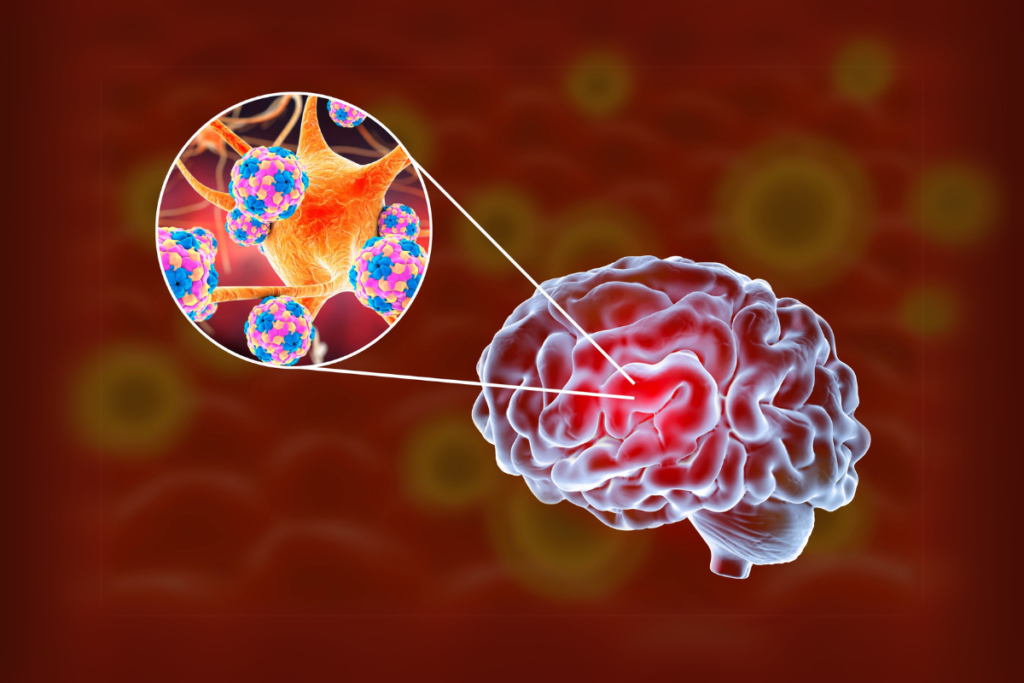Our brain is very sensitive to changes in blood flow and inflammation, and without immediate treatment, permanent damage can occur. For bacterial meningitis, the window for effective treatment is small, and even a few hours of delayed treatment can result in permanent brain damage, severe disability, or death.
With viral meningitis, though the prognosis is better, early treatment still helps mitigate complications. In fungal and tuberculous meningitis, rapid identification and therapy can prevent severe neurological deficits and improve recovery.
How Do Neurologists Approach Meningitis?
When a patient is suspected of having meningitis, neurologists move quickly to assess the situation and provide the correct care. Here’s how we approach it:
1. Clinical Evaluation:
● Initial Symptoms: We quickly assess symptoms like severe headache, fever, and neck stiffness. A focused exam helps identify neurological signs of meningitis.
● Risk Factors: A careful review of recent infections, travel history, or immunocompromised status is vital in determining the likely pathogen.
2. Diagnostic Workup:
● Lumbar Puncture (Spinal Tap): The first-line diagnostic test, which provides CSF for analysis. It helps distinguish bacterial, viral, fungal, and other causes.
● CT or MRI Scan: Imaging helps rule out other causes (like brain abscesses or tumours) and assesses for raised intracranial pressure.
● Blood Tests: Blood cultures, CBC (complete blood count), and inflammatory markers help support the diagnosis and guide treatment decisions.
3. Immediate Treatment:
● For Bacterial Meningitis, IV antibiotics are started immediately, often before the pathogen is identified. Steroids may be used to reduce brain inflammation.
● For Viral Meningitis: Supportive care is typically provided, with antiviral medications for specific viral causes.
● For Fungal or Tuberculous Meningitis, Antifungal or anti-tuberculosis medications are initiated based on diagnosis.
4. Monitoring and Support:
● Close Monitoring: Patients are closely monitored for worsening symptoms, such as seizures, difficulty breathing, or altered mental status. Intensive care may be required for patients with severe symptoms.
Caring for a Meningitis Patient
Caring for a meningitis patient can be daunting, but here’s what you can do to support recovery:
1. Rest and Comfort:
Meningitis patients often have sensitivity to light and headaches, so a dark, quiet room helps them feel more comfortable.
2. Hydration:
Give them fluids by intravenous (IV) if they are incapable of drinking on their own.
3. Follow Medical Advice:
Keep up with prescribed medications, including antibiotics or antivirals, and ensure the patient completes the full course.
4. Monitor for complications:
Meningitis can lead to sepsis or neurological issues. Watch for any sudden worsening and seek immediate medical help.
How HealthPil Can Help
We at HealthPil are aware of how serious meningitis is and how important early treatment is. Our neurologists are available for teleconsultations, so you may get the professional guidance you require in a timely manner. We can provide timely diagnosis and care whether you have suspected meningitis or need advice on continued treatment.
FAQ
How fast does meningitis progress?
Early treatment is important since meningitis can worsen in a matter of hours. If bacterial meningitis is not treated within the first few hours, it can cause brain damage or even death.
How is meningitis diagnosed?
The diagnosis is confirmed through a la lumbar puncture (spinal tap) to analyze cerebrospinal fluid (CSF), along with imaging (CT/MRI) and blood tests.
Can meningitis be prevented?
Vaccination for meningococcal, pneumococcal, and Hib bacteria can prevent some types of meningitis. Good hygiene and vaccination are key preventive measures.
Is meningitis always fatal?
Meningitis can be deadly, especially if bacterial, but if you receive quick treatment, then survival rates are high and long-term complications can often be avoided.
Can I recover from meningitis?
Recovery is possible with early diagnosis and immediate treatment. However, some patients may experience long-term neurological issues, especially if the infection isn’t treated early.
Disclaimer:
This article is for informational purposes only and should not be considered medical advice. Always seek immediate medical attention if you suspect autoimmune encephalitis or any other neurological condition.

